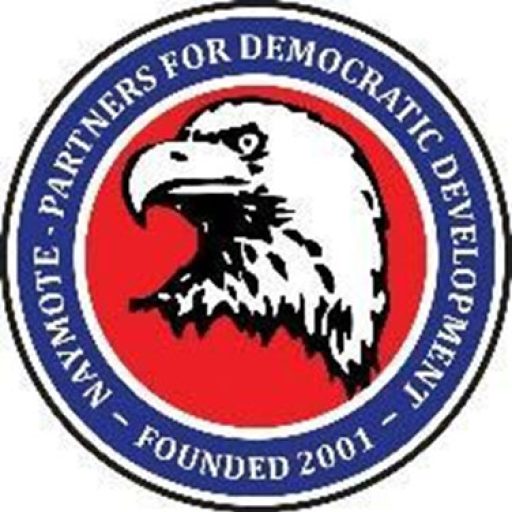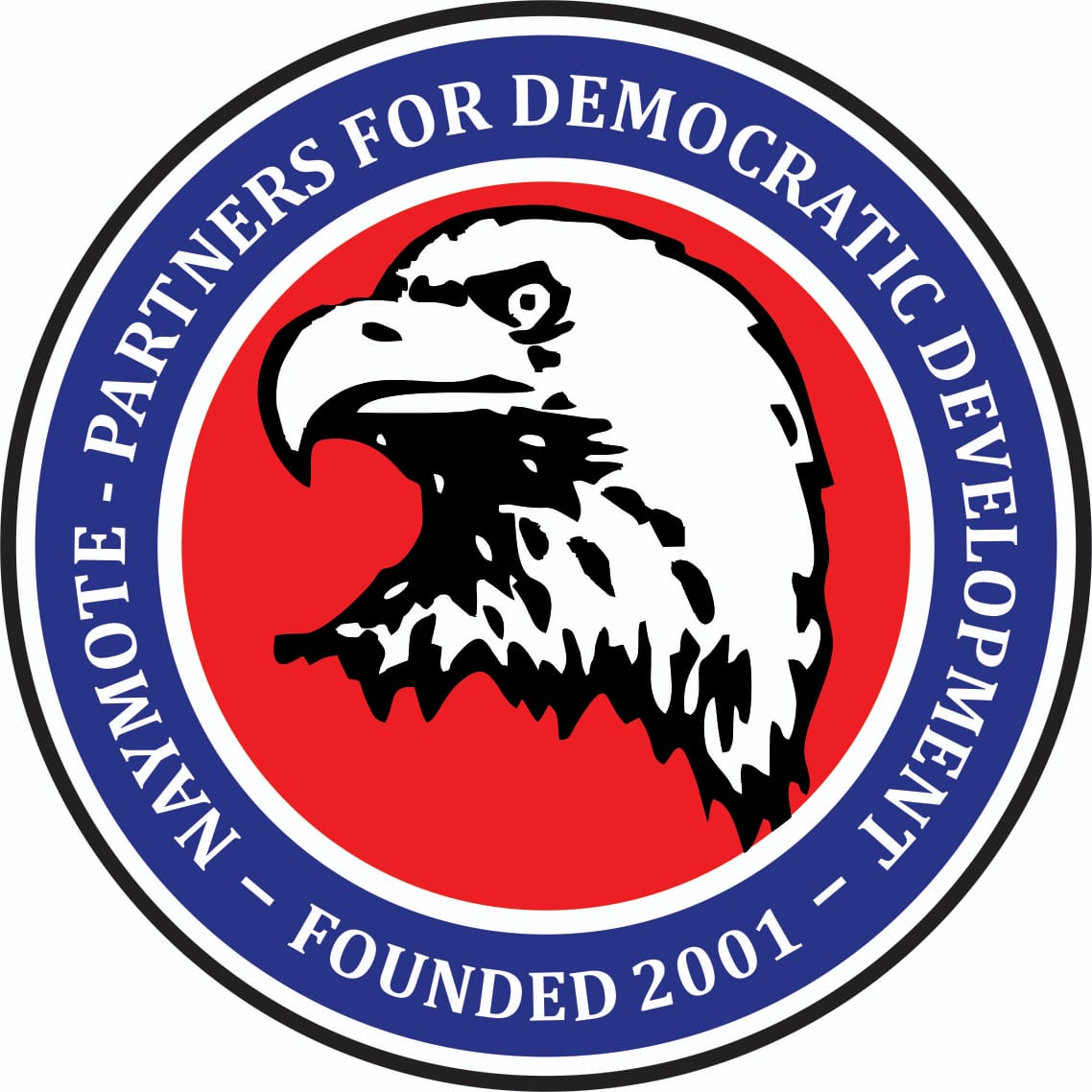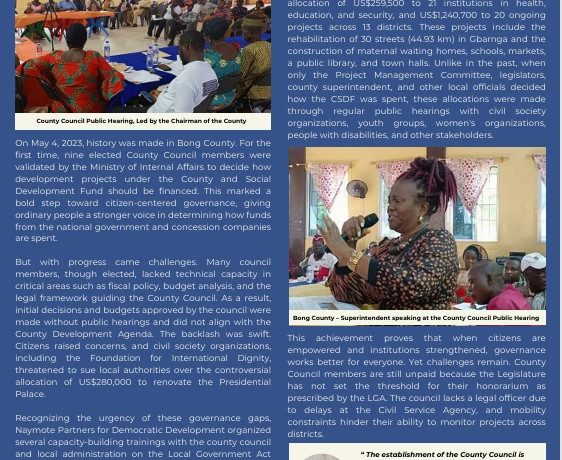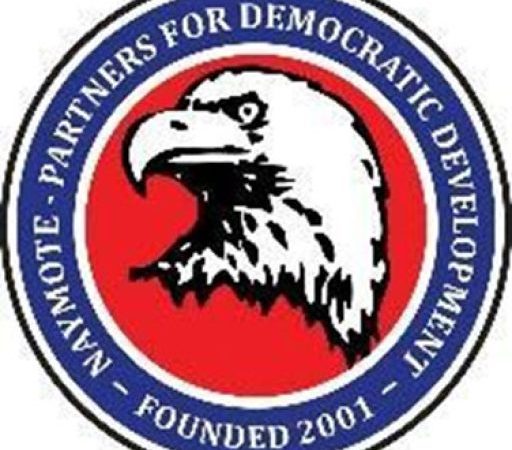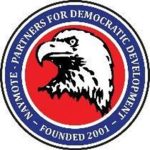On May 4, 2023, history was made in Bong County. For the first time, nine elected County Council members were validated by the Ministry of Internal Affairs to decide how development projects under the County and Social Development Fund should be financed. This marked a bold step toward citizen-centered governance, giving ordinary people a stronger voice in determining how funds from the national government and concession companies are spent.
But with progress came challenges. Many council members, though elected, lacked technical capacity in critical areas such as fiscal policy, budget analysis, and the legal framework guiding the County Council. As a result, initial decisions and budgets approved by the council were made without public hearings and did not align with the County Development Agenda. The backlash was swift. Citizens raised concerns, and civil society organizations, including the Foundation for International Dignity, threatened to sue local authorities over the controversial allocation of US$280,000 to renovate the Presidential Palace.
Recognizing the urgency of these governance gaps, Naymote Partners for Democratic Development organized several capacity-building trainings with the county council and local administration on the Local Government Act (LGA), their roles and responsibilities, budget preparation and review, the County Development Agenda, and the Fiscal Policy and Revenue Sharing Law, among others.
Naymote also collaborated with CENTAL and the Center for Democratic Governance to organize a dialogue with the County Council, County Authority, and civil society that reversed the decision of two civil society organizations to file a lawsuit against the county authority. This dialogue fostered partnership and collaboration and paved the way for inclusive decision-making aligned with the county’s development priorities.
These interventions have transformed the approach to development in the county. Today, the County Council makes decisions with transparency and citizen participation at the center. They have approved the allocation of US$259,500 to 21 institutions in health, education, and security, and US$1,240,700 to 20 ongoing projects across 13 districts. These projects include the rehabilitation of 30 streets (44.93 km) in Gbarnga and the construction of maternal waiting homes, schools, markets, a public library, and town halls. Unlike in the past, when only the Project Management Committee, legislators, county superintendent, and other local officials decided how the CSDF was spent, these allocations were made
through regular public hearings with civil society organizations, youth groups, women’s organizations,
people with disabilities, and other stakeholders.
This achievement proves that when citizens are empowered and institutions strengthened, governance
works better for everyone. Yet challenges remain. County Council members are still unpaid because the Legislature has not set the threshold for their honorarium as prescribed by the LGA. The council lacks a legal officer due to delays at the Civil Service Agency, and mobility constraints hinder their ability to monitor projects across districts.
CSOs and development partners must now rally collective efforts to engage the Legislature, the Civil Service Agency, and other key actors to address these structural gaps. This will enable the County Council to build on its progress and ensure that citizens’ voices remain at the heart of local
governance and development in Bong County.
